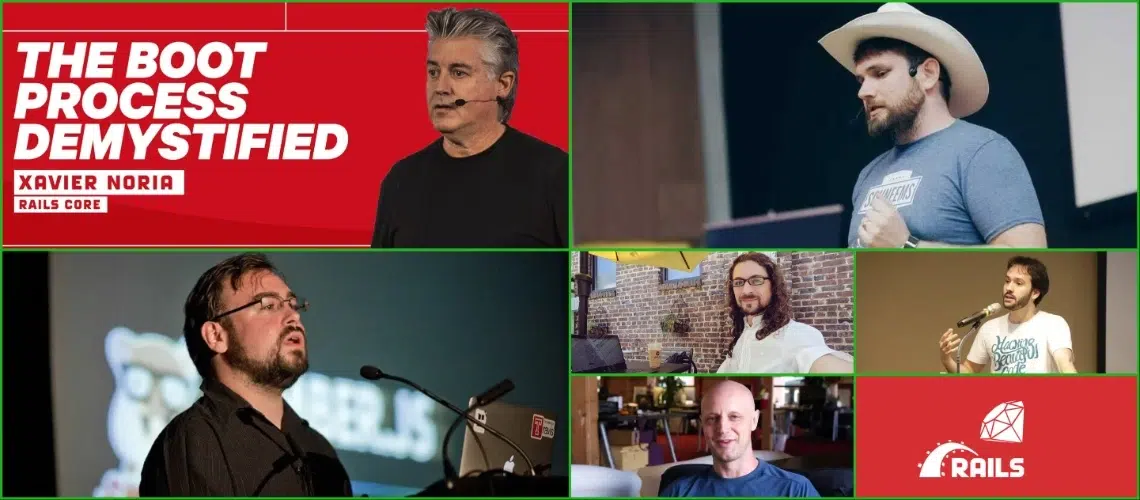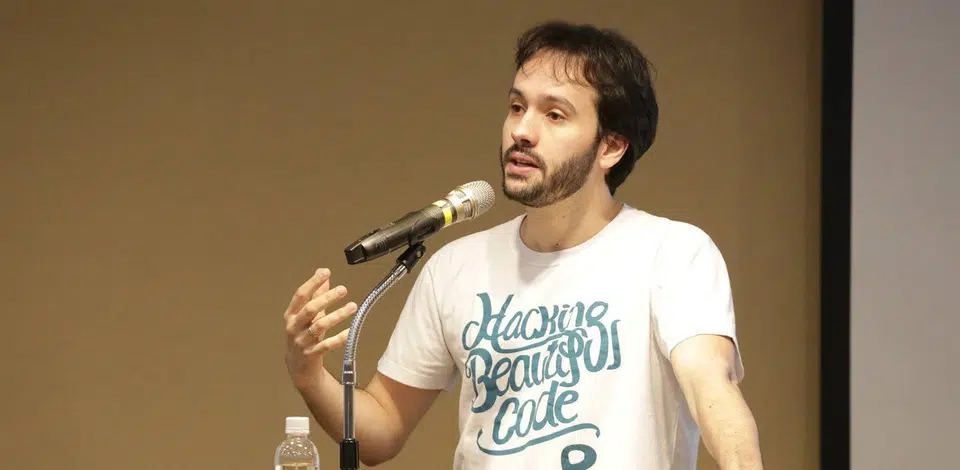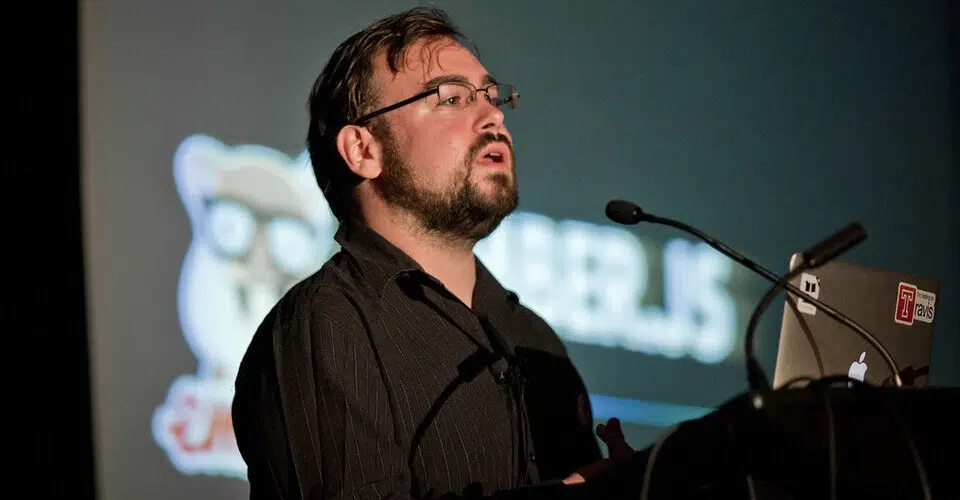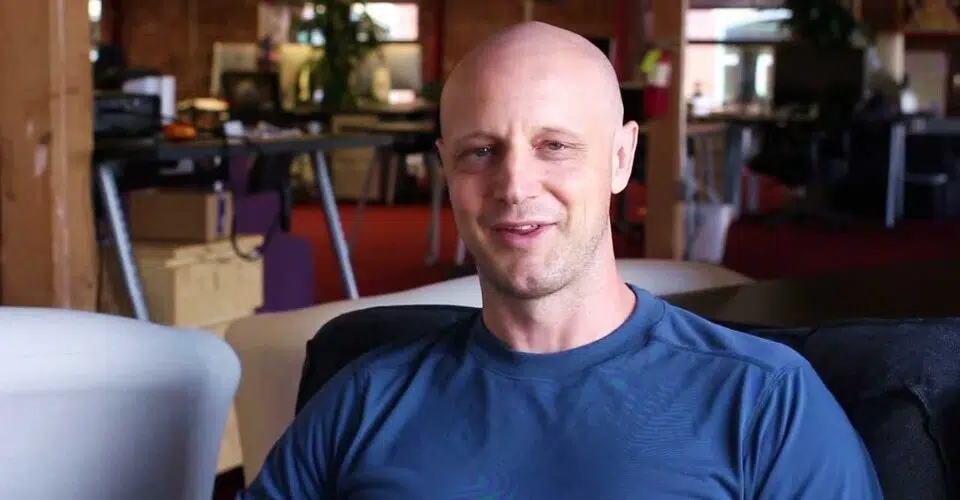Best Ruby on Rails Experts to Follow

Ruby on Rails boasts a vibrant community led by many talented individuals.
Below is a curated list of the top currently active RoR experts globally, selected for their famous open-source contributions to Rails or its ecosystem, roles as startup founders who still code, popular blogging/influencing in tech, impactful positions at major tech firms with knowledge sharing, and even recognition in coding competitions.
- Xavier Noria
- Dave Kimura
- José Valim
- Chris Oliver
- Yehuda Katz
- Mike Perham
- Sam Saffron
- Avdi Grimm
- Sandi Metz
- Michael Hartl
- Sarah Mei
- Nate Berkopec
- Richard Schneeman
- Pat Shaughnessy
- Coraline Ada Ehmke
Now, let’s delve deeper into their backgrounds and contributions.
Xavier Noria

Nationality: Spanish
Xavier is a Rails Core team member from Spain and a respected independent Ruby/Rails consultant with over 20 years of programming experience. He is the author of Zeitwerk, Rails’s modern code loader introduced in Rails 6, which dramatically improved Rails autoloading and thread safety. Noria is also known for his contributions to Rails documentation and for running the Rails Contributors website that tracks open-source contributions.
As the author of Zeitwerk, Xavier solved a longstanding pain point in Rails (the old autoloader) and made it effortless for developers to have their classes auto-loaded in development. He has contributed hundreds of commits to Rails over more than a decade, focusing on integration between Ruby and Rails (e.g. ensuring Rails works with new Ruby versions) and improving framework internals. Noria is a frequent speaker at Ruby and Rails conferences worldwide, sharing deep insights into topics like constant loading, thread safety, and design patterns in Rails.
- LinkedIn: Xavier Noria
- X (Twitter): @fxn
- GitHub: fxn
- Website/Blog: hashref.com
Dave Kimura
Nationality: American
Dave is a Rails developer and educator who hosts Drifting Ruby, a weekly Rails screencast series, and is a panelist on the Ruby Rogues podcast. Based in the U.S., Dave has over 16 years of experience with Rails. His Drifting Ruby episodes (200+ so far) cover practical tips and new gems, aimed at intermediate Rails developers looking to improve their skills. Dave is also known for his work on open-source minor projects and for being active in the Rails online community (StackOverflow, Reddit, etc.).
By sustaining Drifting Ruby for years, Kimura has created a rich library of tutorials that keep pace with the latest Rails features (from Webpacker to Hotwire to authentication solutions). This consistency is rare and valuable for the community – many developers tune in weekly to learn something new. As a Ruby Rogues panelist, he has engaged in discussions about Rails trends and best practices, influencing listeners worldwide. Dave also built ActionAuth, an open-source Rails authentication system, and shares many code examples on his blog. His contributions are measured not just in code, but in the hundreds of hours of content and advice he’s provided, which have helped Rails developers stay up-to-date in a fast-moving tech landscape.
- LinkedIn: Dave Kimura
- X (Twitter): @kobaltz
- GitHub: kobaltz
- Website/Blog: driftingruby.com
José Valim

Nationality: Brazilian
José is the creator of the Elixir programming language and was a member of the Rails Core team from 2010 to 2014. A Brazilian software engineer, he made significant contributions to Rails in its early years – he is the author of widely-used Rails libraries such as Devise (authentication) and Simple Form. Valim received a Ruby Hero Award for his open-source work on Rails before he shifted focus to creating Elixir (in 2011) to explore concurrency beyond what Ruby offered.
During his Rails core tenure, Valim helped develop Rails 3 and 4, integrating the Merb framework’s ideas and creating the Rails API mode. His gem Devise became the de facto standard for Rails authentication, used in thousands of apps worldwide. He also co-created the Rails CoffeeScript integration and contributed to internationalization (I18n) in Rails. After departing the core team, José’s creation of Elixir (inspired by his Rails scaling experiences) opened new paradigms, but he remains celebrated in the Rails community for the tools he built (Devise especially) and the example he set as an open-source innovator.
- LinkedIn: José Valim
- X (Twitter): @josevalim
- GitHub: josevalim
- Website/Blog: dashbit.co/blog
Chris Oliver
Nationality: American
Chris is a solo developer-entrepreneur who has become a one-man resource hub for Rails developers. He’s the creator of GoRails, a Rails screencast and forum site, and builder of several Rails-based services such as Hatchbox.io (Rails server hosting) and Jumpstart Pro (a Rails SaaS template). Through GoRails, Chris has produced hundreds of video tutorials covering everything from beginner Rails setup to advanced feature implementations, helping thousands of developers level up.
Oliver’s GoRails (founded ~2013) filled the gap left by sites like RailsCasts, keeping fresh content flowing for the latest Rails versions. He also contributes to open source – for example, the Pay gem (for payment processing in Rails) – and often shares code snippets via his blog and GitHub. His work on Jumpstart Pro packaged the typical startup features (auth, billing, etc.) into a reusable Rails template, accelerating new app development. Essentially, Chris has turned his passion for Rails into platforms that educate and equip the community. As an educator and toolmaker, he embodies the supportive, knowledge-sharing spirit that makes the Rails ecosystem thrive.
- LinkedIn: Chris Oliver
- X (Twitter): @excid3
- GitHub: excid3
- Website/Blog: excid3.com
Yehuda Katz

Nationality: American
Yehuda is a retired Rails Core team member who was instrumental in the Rails 3 era and co-created essential tools like Bundler. Based in the US, Katz first made his mark by leading the Merb framework, which was merged into Rails in 2008. As part of the Rails Core team afterward, he helped unify Merb’s ideas with Rails and, along with Carl Lerche, created Bundler to manage Ruby gems (now a standard tool in every Rails app). Katz later co-founded Tilde Inc. and co-created Ember.js, a popular JavaScript framework.
Yehuda was a driving force in the transition from Rails 2 to Rails 3, bringing in better modularity and performance. He ensured Rails had a robust dependency management solution – Bundler – which developers still rely on daily. He also developed Thor (a toolkit for scripting and command-line tasks) and contributed to jQuery. A self-described open-source “standardista,” Katz engaged in web standards (TC39 for JavaScript) and even Rust language development. His broad influence across Rails, JavaScript, and even Rust showcases his versatility, but Rails developers remember him best for making gem management and framework integration smoother in the early 2010s.
- LinkedIn: Yehuda Katz
- X (Twitter): @wycats
- GitHub: wycats
- Website/Blog: yehudakatz.com
Mike Perham
Nationality: American
Mike is the creator of Sidekiq, the dominant background job processing library for Ruby on Rails. Based in the US, Perham turned Sidekiq into a successful open-source project and a one-person SaaS business, providing both free and enterprise features for job queuing. Sidekiq, known for its efficiency (using threads to handle many jobs concurrently), is used in countless Rails applications to process emails, uploads, and other offloaded tasks.
By introducing Sidekiq in 2012, Mike significantly improved how Rails apps handle background processing – it replaced alternatives like Delayed Job and Resque by offering better performance and a friendly web dashboard. He continues to actively maintain and improve Sidekiq (now on version 8), keeping it up-to-date with Redis and Rails changes. Mike also created Faktory, a polyglot job queue system, and shares his knowledge via his blog and talks. His journey of building a sustainable business around an open-source Rails tool is often cited as a model for indie developers. In short, Perham’s work enables Rails apps to scale and handle billions of jobs reliably.
- GitHub: mperham
- Website/Blog: mikeperham.com
Sam Saffron
Nationality: Australian
Sam is an Australian software developer best known as the co-founder of Discourse, the popular open-source forum platform built with Rails. A performance guru, Sam is also behind MiniProfiler (a Rails performance profiling tool) and has contributed heavily to the PostgreSQL and memory optimization side of Rails apps. At Discourse, which he started with Jeff Atwood, Sam remains the CTO and continues to actively code on the Rails codebase that serves millions of users in online communities.
With Discourse (launched 2013), Saffron demonstrated how a large single-page-app frontend (Ember.js) could be paired with a Rails backend to create a seamless, real-time forum experience. He engineered features in Rails to support long-lived apps, like identity caching and memory leak trackers, which have benefited others. Sam also wrote the Rails Performance Guide and regularly blogs about scaling Rails (his posts on database indexing, GC tuning, etc., are highly regarded). On his personal blog, he dives into deep technical topics – earning him a reputation as a go-to expert for Rails under the hood. Through both Discourse and his open-source utils, Sam Saffron has pushed Rails to be faster and more scalable.
- LinkedIn: Sam Saffron
- X (Twitter): @samsaffron
- GitHub: SamSaffron
- Website/Blog: samsaffron.com
Avdi Grimm

Nationality: American
Avdi is a veteran Ruby/Rails developer, author, and educator. He’s the creator of RubyTapas, one of the first and largest collections of Ruby screencasts, with hundreds of bite-sized episodes teaching Ruby and Rails techniques. Avdi also co-hosted the Ruby Rogues podcast and has written influential Ruby books like Confident Ruby and Exceptional Ruby. With over 20 years in software, Avdi is regarded as a thought leader in writing maintainable, object-oriented Ruby code.
Through RubyTapas, Grimm taught an entire generation of Rails developers idiomatic Ruby – his focus on code aesthetics and simplicity has shaped many coding styles. He introduced concepts like confident code (structuring methods to reduce conditional branches) that are now common wisdom. Avdi has contributed to open source (e.g., the Enumerable#chain method in Ruby came from him) and is a sought-after speaker at Rails and Ruby conferences. As an influencer, his blog posts on testing, refactoring, and programming philosophy have been widely shared. In sum, Avdi Grimm’s impact is felt in how Rails developers learn and think about writing clean code.
- LinkedIn: Avdi Grimm
- X (Twitter): @avdi
- GitHub: avdi
- Website/Blog: avdi.codes
Sandi Metz
Design is the art of arranging code that does what it needs to do now, and is easy to change later.
Nationality: American
Sandi is a programmer, author, and consultant who is internationally renowned in the Rails community for her expertise in object-oriented design. She’s the author of the seminal book Practical Object-Oriented Design in Ruby (POODR), which many Rails developers treat as a bible for writing extendable and maintainable code. Metz spent many years as a developer at Duke University before becoming an independent coach/consultant, and she frequently speaks at Rails and Ruby conferences with engaging, story-driven talks.
Sandi’s book POODR (2012) taught Rubyists core OOP principles (SOLID, design patterns) in a very approachable way, significantly influencing Rails programming practices. She followed up with a second book and training courses, making topics like refactoring and OO design accessible to everyday developers. Sandi’s conference talks – often using live storytelling – have inspired thousands to rethink how they structure Rails code. For example, her mantra “Prefer small methods” and techniques for breaking dependencies are now common recommendations. While not a “core code” contributor, Metz’s contribution is a shared vocabulary and approach for crafting quality Rails applications.
- LinkedIn: Sandi Metz
- X (Twitter): @sandimetz
- GitHub: sandimetz
- Website/Blog: sandimetz.com
Michael Hartl

Nationality: American
Michael is best known as the creator of the Ruby on Rails Tutorial, an online book and course that has served as a starting point for countless Rails developers. A physicist-turned-developer, Hartl first released the Rails Tutorial in 2010 and continually updated it through Rails versions (latest covering Rails 7). This hands-on tutorial (building a sample Twitter-like app) became one of the leading introductions to web development with Rails. Hartl also co-founded a publishing platform (Learn Enough Society) to teach technical skills.
The Rails Tutorial is often cited alongside Rails itself – it has over 15,000 ratings on Amazon and has been used in university courses and bootcamps. By open-sourcing the entire book, Hartl ensured widespread access to quality Rails training. Many in the community credit him for their initial understanding of MVC, RESTful routes, and Rails conventions. Besides the tutorial, Hartl has authored content on Git, the Unix command line, etc., but Rails remains his legacy. In short, as “the creator of the Ruby on Rails Tutorial”, he has arguably onboarded more people into Rails than anyone else.
- LinkedIn: Michael Hartl
- X (Twitter): @mhartl
- GitHub: mhartl
- Website/Blog: railstutorial.org
Sarah Mei
Nationality: American
Sarah is a senior software engineer and thought leader focused on the human side of software development. She co-founded RailsBridge in 2009 – an initiative that offers free Rails workshops to underrepresented groups, which has since expanded globally. Based in San Francisco, Sarah has been a director of Ruby Central (which runs RailsConf) and is a recipient of the Ruby Hero Award and O’Reilly Open Source Award for her contributions to diversity and education in the Rails community.
Through RailsBridge (now part of Bridge Foundry), Mei helped bring thousands of newcomers (especially women) into the Rails community by lowering the barriers to entry. As an architect and consultant (formerly at Salesforce/Ministry of Velocity), she’s written and spoken extensively about maintaining large Rails codebases – her essay “Rails is Omakase” and others challenge assumptions and encourage inclusive, team-oriented coding practices. Sarah has also mentored developers (often pairing with Sandi Metz to teach design). Her influence is notable in the emphasis on community culture in Rails – making the community more welcoming and aware of team dynamics is as much her legacy as any code.
- LinkedIn: Sarah Mei
- X (Twitter): @sarahmei
- GitHub: sarahmei
- Website/Blog: sarahmei.com
Nate Berkopec
Nationality: American
Nate is a Ruby on Rails performance expert and consultant, known for authoring “The Complete Guide to Rails Performance” and running the Rails Performance Workshop. As a self-described “speed freak,” he specializes in helping Rails applications achieve low response times and efficient throughput. Nate is also a contributor to open source – he’s worked on Rack and other foundational pieces of the Ruby web stack – and he created the Discourse benchmarking tool and the rails_speed newsletter to share performance tips.
Berkopec’s book and material filled a crucial gap by showing developers how to benchmark and optimize Rails apps (covering topics like SQL tuning, caching, memory usage, etc.). He identified many common pitfalls (e.g., N+1 queries, slow view rendering) and provided actionable fixes, influencing how large production apps are managed. Nate also contributed to improving Puma, the Rails web server, by helping with its responsiveness and documenting how to get the best out of it. He is a regular speaker at Rails and Ruby events, evangelizing that Rails can scale when you know what to tweak. Thanks to his work, “performance paranoia” is now more common in the Rails world – in a good way – resulting in faster apps for users.
- LinkedIn: Nate Berkopec
- X (Twitter): @nateberkopec
- GitHub: nateberkopec
Richard Schneeman

Nationality: American
Richard “Schneems” is a prominent Ruby/Rails engineer and educator who was a long-time member of Heroku’s Ruby team. At Heroku (a cloud platform for deploying Rails apps), he maintained important libraries like Sprockets (Rails asset pipeline) and co-authored ActiveStorage in Rails. Schneeman created CodeTriage, a popular web app that helps developers find open issues to contribute to in Ruby/Rails repos. He also organizes the annual Keep Ruby Weird conference in Austin, Texas, blending community fun with tech talks.
Schneeman’s work at Heroku helped optimize Rails for the cloud – he wrote patches to make Rails memory use more efficient on Heroku’s dynos and advocated for changes that landed in Rails core (like thread-safe code loading). His app CodeTriage has onboarded many newbies into contributing to Rails and other projects by curating issues. As a blogger, his articles (“How I Rails” series, etc.) and his book “How to Read Ruby” empower developers to dig into Rails source code. Furthermore, by running Keep Ruby Weird and speaking at conferences, he keeps the community vibrant and welcoming. Schneeman exemplifies the complete Rails expert: open-source contributor, performance tuner, and community builder.
- LinkedIn: Richard “Schneems” Schneeman
- X (Twitter): @schneems
- GitHub: schneems
- Website/Blog: schneems.com
Pat Shaughnessy
Nationality: American
Pat is a Ruby developer and author who currently works at Apple and is known for deep explorations of Ruby internals. He wrote the acclaimed book “Ruby Under a Microscope,” which dissects how Ruby and its MRI interpreter work under the hood. Pat’s blog posts and conference talks often take complex topics (garbage collection, parsing, etc.) and make them understandable for average Rails developers. He has been a regular speaker at RailsConf and RubyConf, sharing insights that help developers appreciate the magic inside Ruby and Rails.
Through Ruby Under a Microscope, Shaughnessy demystified the internal implementation of things like Ruby’s objects and method lookup, benefiting framework developers and curious Rails engineers alike. His writing style (with clever analogies and diagrams) lowered the barrier to contributing to MRI and also indirectly to Rails (since understanding Ruby internals can lead to writing more optimal Rails code). Additionally, Pat has contributed code to open source – he’s known to experiment with Ruby C extensions and has contributed to projects like Nokogiri. By shedding light on what happens beneath Rails (at the Ruby level), he’s given many a deeper appreciation and toolkit for debugging performance issues. Pat continues to share knowledge via his blog and tweets, even as he applies his skills to large-scale systems at Apple.
- LinkedIn: Pat Shaughnessy
- X (Twitter): @pat_shaughnessy
- GitHub: patshaughnessy
- Website/Blog: patshaughnessy.net
Coraline Ada Ehmke
Nationality: American
Coraline is a software developer and open-source advocate known for her work on diversity and ethics in tech. She created the Contributor Covenant, the most widely adopted open-source code of conduct, which Rails and thousands of other projects use to define community standards. Coraline was a Rails developer at GitHub and Engine Yard, and later founded the Organization for Ethical Source. She won a Ruby Hero Award in 2016 for her community efforts.
Within the Rails ecosystem, Ehmke contributed code (she worked on ActiveRecord and Rails engines at Engine Yard) but her larger mark has been cultural. By introducing the Contributor Covenant in 2014, she provided a template that Rails and many gems adopted to encourage inclusive and harassment-free collaboration. This has had a lasting effect on open-source culture in the Rails world and beyond. Coraline also developed tools like Thermostat (to detect code toxicity) and the upcoming Hippocratic License for ethical OSS. She frequently speaks about open source governance, and her blog and talks challenge the community to improve not just code, but also the environment in which code is made. Through her activism and technical contributions, Coraline Ada Ehmke has helped ensure the Rails community strives to be as welcoming as the framework is productive.
- LinkedIn: Coraline Ada Ehmke
- X (Twitter): @CoralineAda
- GitHub: CoralineAda
- Website/Blog: where.coraline.codes
Wrap Up
These legends represent exceptional talent, making them extremely challenging to headhunt. However, there are thousands of other highly skilled IT professionals available to hire with our help. Contact us, and we will be happy to discuss your hiring needs.
Note: We’ve dedicated significant time and effort to creating and verifying this curated list of top talent. However, if you believe a correction or addition is needed, feel free to reach out. We’ll gladly review and update the page.
